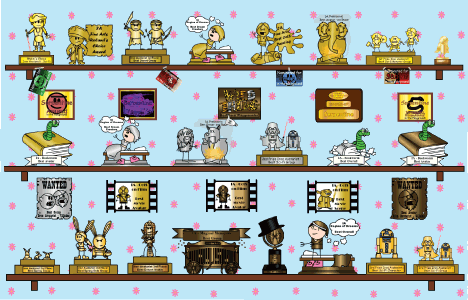You may not have been saying that, but you also haven't exactly been going out of your way to clarify that all the evils of livestock agriculture you've been talking about are by no means universal. In fact, it seems to me that for the most part it's pretty US-specific. Most of it simply doesn't apply to Australia, for example, and a lot of what does, doesn't apply to kangaroos as another example. To reiterate: a substantial part of the land in Australia used for grazing sheep and cattle cannot be used for human-edible crops due to lack of rainfall, rough terrain and/or inadequate soil which would require huge amounts of waterway-poisoning fertiliser. The Australian beef and cattle industry is not, for the most part, taking up space that could be "more efficiently" used for vegetables and grains. Australian beef and lamb is, by default, free-range* and grass-fed. There is some grain-fed and corn-fed meat grown here, but it's always boldly pronounced as such because it's unusual and, therefore, supposedly makes it specialler or something. I'll now know not to be fooled by that, and avoid it like the plague.
Now, yes, the average non-vegetarian diet does incorporate more meat than is both necessary and recommended from a health standpoint. And I'd almost like to date a vegetarian at this point just so that I'd be properly motivated to stop being a hypocrite and go to more effort to find ethical meat (also I think I'd actually have quite a lot in common with the non-militant vegetarians) - I think it'll actually be one of the first lifestyle changes I'll make when I have a proper income, seeking out ethical, environmentally friendly and probably mostly locally-grown food.
Anyway, my point is, there's plenty wrong with the meat industry, and plenty of reasons to reduce the amount we consume, and everyone should be far more aware of what we eat, where it comes from and how it's produced. But there is no need to exaggerate the problems and make sweeping generalisations: acknowledging the areas that are doing right is just as important as pointing out the stuff that's wrong.
*though there are other issues, e.g. the live sheep export, which is a semi-major issue at the moment.
View Single Post
-
2012-10-19, 06:12 AM (ISO 8601)Colossus in the Playground

- Join Date
- Jun 2006
- Location
- Dinosaur Museum aw yisss.
- Gender

 Re: PETA releases statement opposing Pokemon
The Iron Avatarist Hall of Fame!
Re: PETA releases statement opposing Pokemon
The Iron Avatarist Hall of Fame!
Prizes(Un)Official Best Playground Avatarist Competition
----
Also, buy my stuff! T-Shirts too!





 Reply With Quote
Reply With Quote